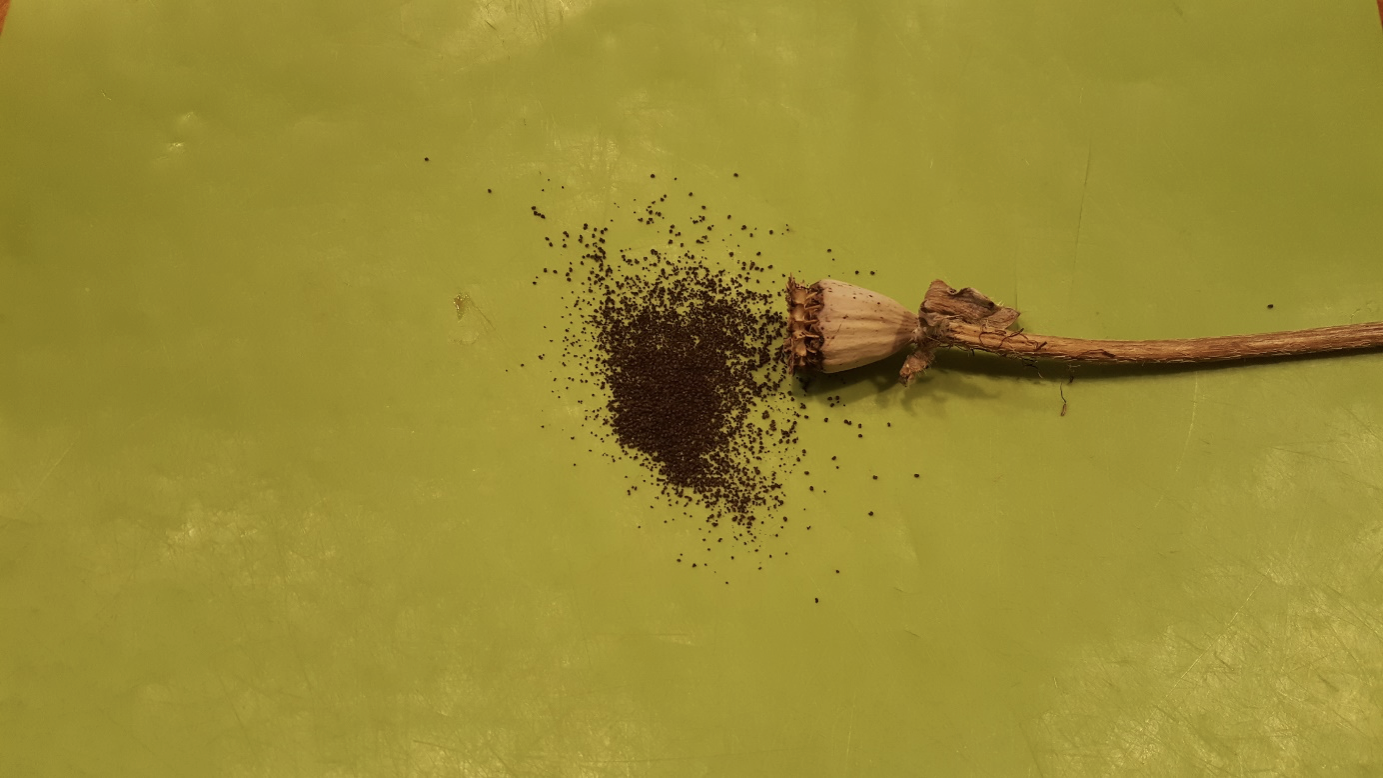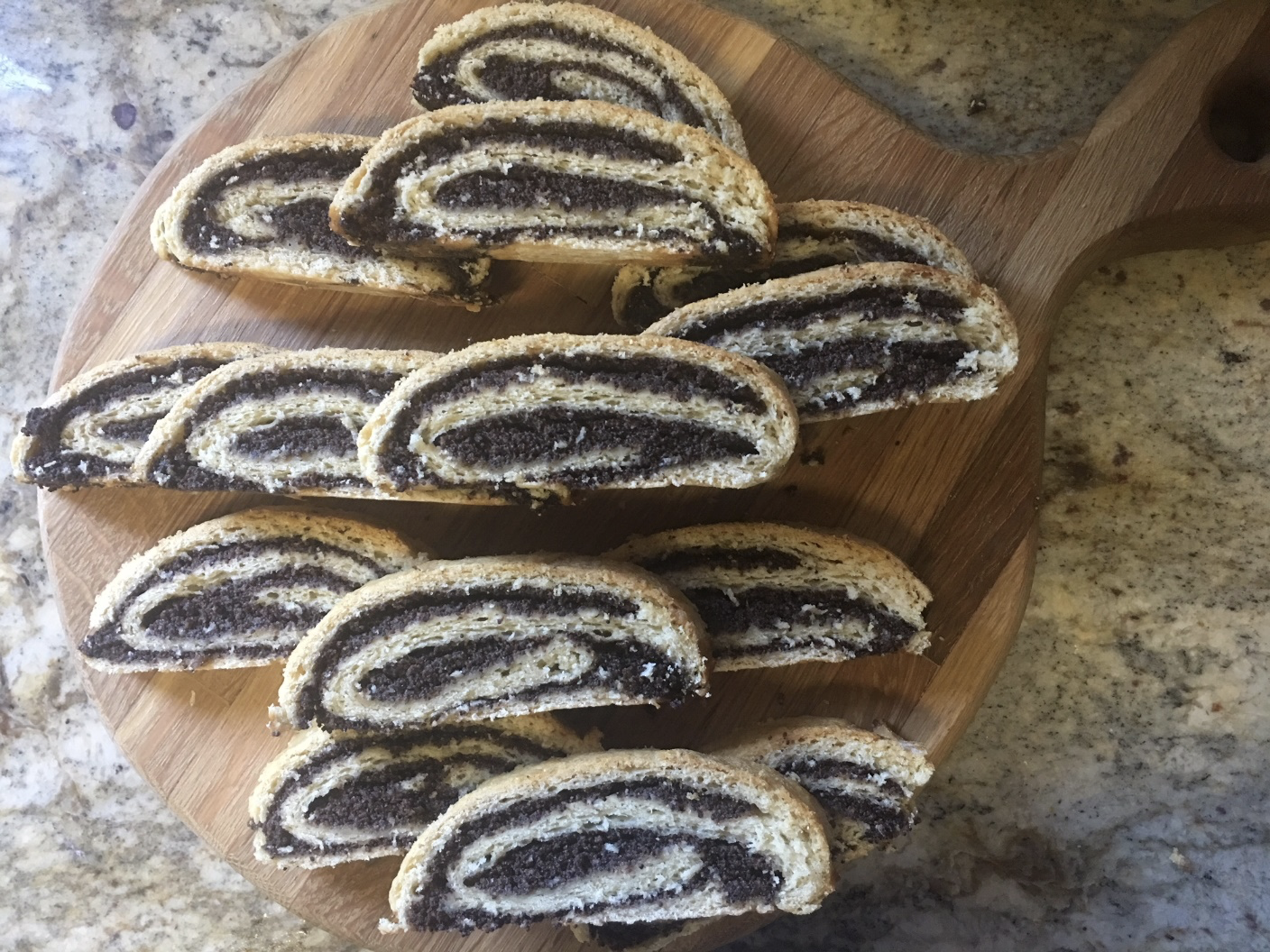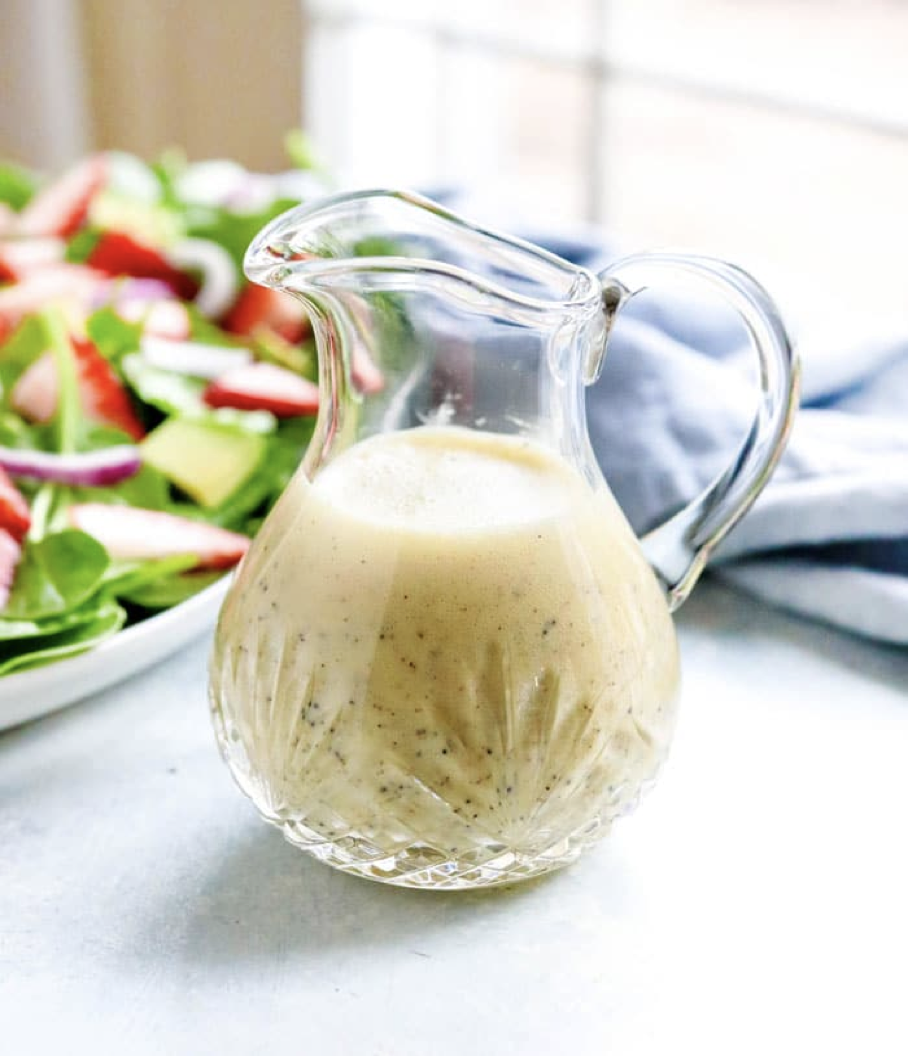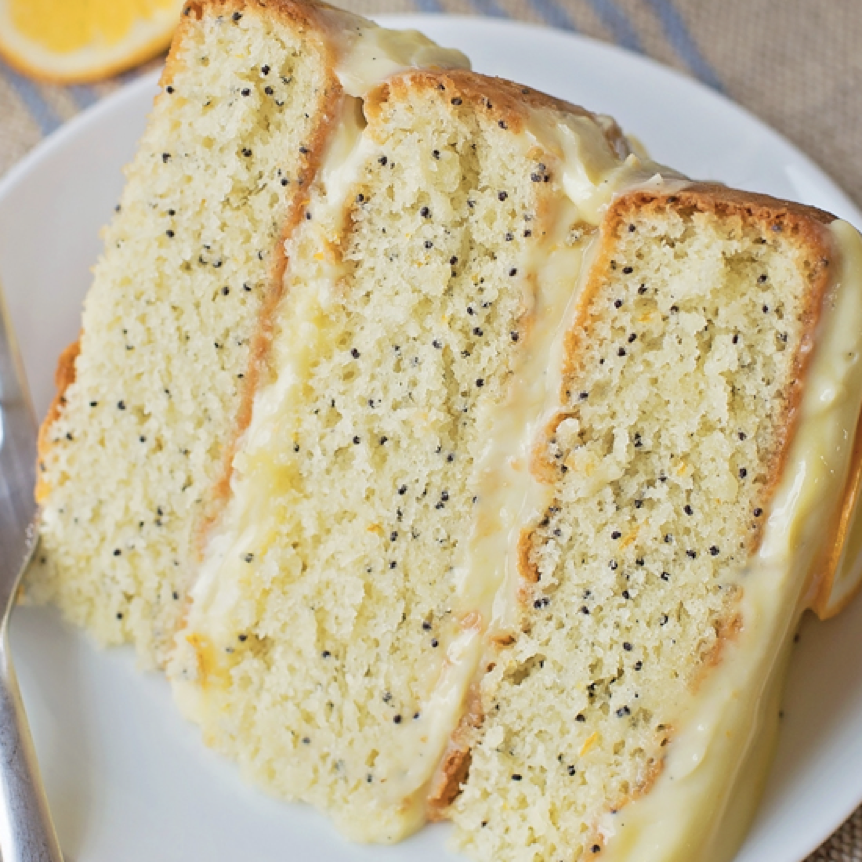Why Poppy Seed is a good bet
After researching the health benefits of poppy seeds, I decided this year that after my poppy plant quit blooming, I’d allow the bloom heads to completely dry out and harvest the seeds.

If you grow poppies, you might want to do the same thing because this is a truly nutritionally dense seed. Just 1 tablespoon of poppy seed has only 46 calories, 1.6 grams of protein, and is a good source of fiber, calcium, magnesium, phosphorus, zinc, thiamin, and iron. But what makes this seed especially valuable is that it’s a great source of manganese, copper, and polyphenols.
Manganese is a trace element important for bone health and blood clotting. This mineral also helps the body utilize amino acids, fats, and carbs. Copper is vitally important for making and strengthening connective tissue and the transportation of iron throughout the body. And polyphenols are a special type of antioxidants.

Poppy seeds have been used for medicinal and culinary purposes around the world for thousands of years. They are popularly accompanied by lemon in baked goods, a nostalgic combination that has become a cult favorite throughout the US. All sorts of research show that it’s worth using these tiny seeds more often because of the above-mentioned incredible nutritional benefits.
They’re versatile, as well. They can be used whole, ground, or pressed into oil. They are popular for baking in European, North American, and Middle Eastern cuisines. Jewish cooking in particular has several pastry recipes that use poppy seeds in the fillings. Indian cuisine uses ground white poppy seeds to thicken and flavor traditional sauces and stews.

As mentioned earlier, poppy seeds are usually paired with lemon in sweet pastries like muffins and scones (especially in the U.S.). Because they pair so well with lemon, they also make for an interesting addition to simple pasta dishes with garlic, herbs and again, lemon. And of course, they’re also used in savory applications like bagel toppings and salad dressings.
While all the above uses are delicious, there’s no easier way to get more poppy seed into the diet than in that all-time favorite, lemon poppy seed dressing. I found a terrific recipe for it on a favorite site, www.detoxinista.com. Nutritionist and creator of the site (and this recipe), Megan, says that the key to a good lemon poppy seed dressing is to use freshly squeezed lemon juice. It tastes so much better than the store-bought bottles. Don’t we all agree with that observation!?


1/2 cup freshly squeezed lemon juice
1/2 cup extra virgin olive oil
1/4 cup raw honey (or pure maple syrup)
2 teaspoons spicey brown mustard
1/2 teaspoon fine sea salt
1/4 cup diced red onions (about 2 slices)
1 tablespoon poppy seeds
Directions:
Add Recipe to Cook'n
And of course, other popular ways to use poppy seeds are in cake and muffin batter. Lemon poppy seed muffins are a breakfast and brunch highlight. So good in fact, that my family sometimes calls them dessert. And a bona-fide dessert, lemon poppy seed cake, has been considered a national favorite, second only to chocolate cake.

In a time when protecting our immune system is becoming a dietary priority, why not consider incorporating more poppy seed into your diet? Whether home grown or store bought, poppy seed is a good bet—simple to use and healthy to boot!

If you grow poppies, you might want to do the same thing because this is a truly nutritionally dense seed. Just 1 tablespoon of poppy seed has only 46 calories, 1.6 grams of protein, and is a good source of fiber, calcium, magnesium, phosphorus, zinc, thiamin, and iron. But what makes this seed especially valuable is that it’s a great source of manganese, copper, and polyphenols.
Manganese is a trace element important for bone health and blood clotting. This mineral also helps the body utilize amino acids, fats, and carbs. Copper is vitally important for making and strengthening connective tissue and the transportation of iron throughout the body. And polyphenols are a special type of antioxidants.

Poppy seeds have been used for medicinal and culinary purposes around the world for thousands of years. They are popularly accompanied by lemon in baked goods, a nostalgic combination that has become a cult favorite throughout the US. All sorts of research show that it’s worth using these tiny seeds more often because of the above-mentioned incredible nutritional benefits.
They’re versatile, as well. They can be used whole, ground, or pressed into oil. They are popular for baking in European, North American, and Middle Eastern cuisines. Jewish cooking in particular has several pastry recipes that use poppy seeds in the fillings. Indian cuisine uses ground white poppy seeds to thicken and flavor traditional sauces and stews.

As mentioned earlier, poppy seeds are usually paired with lemon in sweet pastries like muffins and scones (especially in the U.S.). Because they pair so well with lemon, they also make for an interesting addition to simple pasta dishes with garlic, herbs and again, lemon. And of course, they’re also used in savory applications like bagel toppings and salad dressings.
While all the above uses are delicious, there’s no easier way to get more poppy seed into the diet than in that all-time favorite, lemon poppy seed dressing. I found a terrific recipe for it on a favorite site, www.detoxinista.com. Nutritionist and creator of the site (and this recipe), Megan, says that the key to a good lemon poppy seed dressing is to use freshly squeezed lemon juice. It tastes so much better than the store-bought bottles. Don’t we all agree with that observation!?

Lemon Poppy Seed Dressing

Yield: 1 1/2 cups
Ingredients:
1/2 cup freshly squeezed lemon juice
1/2 cup extra virgin olive oil
1/4 cup raw honey (or pure maple syrup)
2 teaspoons spicey brown mustard
1/2 teaspoon fine sea salt
1/4 cup diced red onions (about 2 slices)
1 tablespoon poppy seeds
Directions:
1. In a blender, combine the lemon juice, olive oil, honey, mustard, salt, and red onion, and blend until smooth. Taste the dressing and adjust any seasoning, if needed.
2. Add the poppy seeds and pulse the blender briefly, just enough to disperse them. Pour the dressing into an airtight container and store it in the fridge until ready to serve.
3. Leftover dressing should last in an airtight container in the fridge for up to 5 days.
2. Add the poppy seeds and pulse the blender briefly, just enough to disperse them. Pour the dressing into an airtight container and store it in the fridge until ready to serve.
3. Leftover dressing should last in an airtight container in the fridge for up to 5 days.
Recipe formatted with the Cook'n Recipe Software from DVO Enterprises.
And of course, other popular ways to use poppy seeds are in cake and muffin batter. Lemon poppy seed muffins are a breakfast and brunch highlight. So good in fact, that my family sometimes calls them dessert. And a bona-fide dessert, lemon poppy seed cake, has been considered a national favorite, second only to chocolate cake.

In a time when protecting our immune system is becoming a dietary priority, why not consider incorporating more poppy seed into your diet? Whether home grown or store bought, poppy seed is a good bet—simple to use and healthy to boot!
Sources:
- www.polishhousewife.com
- www.detoxinista.com
- www.lifemadesimplebakes.com
 Alice Osborne
Alice Osborne
Weekly Newsletter Contributor since 2006
Email the author! alice@dvo.com
